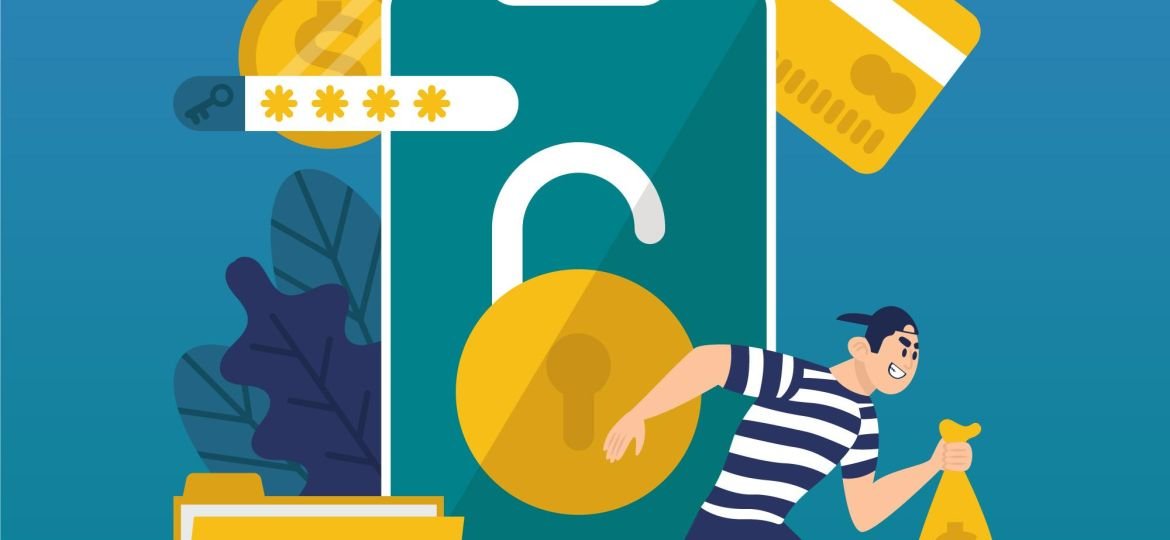
In today’s digital age, the internet has become an integral part of our daily lives, enabling us to connect, work, and manage our finances with ease. However, this convenience also brings with it the risk of identity theft and financial fraud. Protecting your identity and finances online is crucial to safeguarding your personal and financial well-being. In this comprehensive guide, we’ll explore practical strategies and the latest trends to help you stay secure and maintain control over your digital footprint.
Securing Your Online Accounts
Strong Password Practices
One of the most fundamental steps in protecting your identity and finances online is to create strong, unique passwords for all your accounts. Avoid using easily guessable information like your name, birthdate, or common phrases. Instead, opt for a combination of uppercase and lowercase letters, numbers, and special characters. Consider using a password manager to generate and store complex passwords securely.
Two-Factor Authentication
Enabling two-factor authentication (2FA) on your online accounts adds an extra layer of security. This feature requires you to provide a second form of verification, such as a code sent to your phone or a biometric scan, in addition to your password. This makes it much harder for unauthorized individuals to access your accounts, even if they have your password.
Monitoring Account Activity
Regularly review your account statements and online activity to detect any suspicious transactions or unauthorized access. Many financial institutions and online services offer alerts and notifications to help you stay on top of any unusual activity.
Protecting Your Personal Information
Secure Your Social Media Profiles
Be mindful of the personal information you share on social media platforms. Limit the amount of sensitive data, such as your birthdate, home address, or phone number, that you make publicly available. Review your privacy settings and adjust them to restrict access to your information.
Be Cautious with Public Wi-Fi
Avoid conducting sensitive financial transactions or accessing personal accounts while connected to public Wi-Fi networks. These networks are often unsecured and can leave your data vulnerable to interception. If you must use public Wi-Fi, consider using a virtual private network (VPN) to encrypt your internet connection.
Beware of Phishing Scams
Phishing scams, where criminals attempt to trick you into revealing your login credentials or other sensitive information, are a common threat. Be wary of unsolicited emails, texts, or calls that appear to be from legitimate organizations and always verify the source before providing any information.
Safeguarding Your Finances
Monitor Your Credit Reports
Regularly check your credit reports from the three major credit bureaus (Equifax, Experian, and TransUnion) to ensure there are no unauthorized accounts or inquiries. You can obtain free annual credit reports from each bureau and consider enrolling in a credit monitoring service for ongoing monitoring.
Freeze Your Credit
Placing a credit freeze on your credit file can help prevent identity thieves from opening new accounts in your name. This restricts access to your credit report, making it more difficult for criminals to establish new credit in your name.
Use Secure Payment Methods
When making online purchases, opt for secure payment methods like credit cards or digital wallets. Avoid using debit cards, as they provide less protection against fraudulent transactions. Consider using a virtual credit card number for added security when shopping with unfamiliar merchants.
Comparison Tables
Password Manager Comparison
| Feature | LastPass | 1Password | Dashlane |
|---|---|---|---|
| Encryption | AES-256 | AES-256 | AES-256 |
| Biometric Support | Yes | Yes | Yes |
| Secure Sharing | Yes | Yes | Yes |
| Free Version | Yes | No | Yes |
| Mobile Apps | Yes | Yes | Yes |
Credit Monitoring Services Comparison
| Feature | IdentityForce | LifeLock | Experian IdentityWorks |
|---|---|---|---|
| Credit Bureau Monitoring | Equifax, Experian, TransUnion | Equifax, Experian, TransUnion | Experian |
| Identity Theft Insurance | Up to $1 million | Up to $1 million | Up to $1 million |
| Dark Web Monitoring | Yes | Yes | Yes |
| Monthly Cost | $17.95 | $9.99 | $9.99 |
Ready to take control of your finances? Visit upgrade.com now to explore a range of financial products, including Personal Loans, Auto Refinance Loans, Home Improvement Loans, Personal Credit Lines, and Upgrade Card. Let Upgrade help you achieve your financial goals today!
Staying Vigilant and Up-to-Date
Protecting your identity and finances online is an ongoing process that requires diligence and adaptability. As cybercriminals continue to devise new tactics, it’s essential to stay informed about the latest trends and best practices.
Regularly Update Your Software
Ensure that your operating system, web browsers, and other software are always up-to-date. Software updates often include security patches that address vulnerabilities and help protect your devices from emerging threats.
Be Cautious of Data Breaches
When major data breaches occur, be proactive in monitoring your accounts and credit reports for any suspicious activity. Consider enrolling in identity theft protection services or credit monitoring to help safeguard your information.
Educate Yourself and Stay Informed
Regularly review educational resources, such as government websites and cybersecurity blogs, to stay informed about the evolving landscape of online threats and the most effective ways to protect yourself.
Conclusion
Safeguarding your identity and finances in the digital age requires a multi-faceted approach. By implementing strong password practices, enabling two-factor authentication, securing your personal information, and vigilantly monitoring your financial accounts, you can significantly reduce the risk of identity theft and financial fraud.
Remember, staying informed and adapting to the latest trends and best practices is crucial. Regularly review your security measures, stay vigilant for emerging threats, and don’t hesitate to seek professional assistance if you suspect any unauthorized activity. By taking these proactive steps, you can enjoy the convenience of the online world while maintaining control over your personal and financial well-being.
FAQ
Q: Is it safe to store my passwords in a password manager?
A: Yes, using a reputable password manager is generally considered safe and even more secure than trying to remember multiple complex passwords. Password managers encrypt your data and require a master password or biometric authentication to access your stored passwords.
Q: What should I do if I suspect fraudulent activity on my financial accounts?
A: If you notice any unauthorized transactions or suspicious activity on your financial accounts, contact your financial institution immediately to report the issue. They can help you investigate the activity, freeze your accounts if necessary, and guide you on next steps to protect your finances.
Q: How can I check if my personal information has been compromised in a data breach?
A: Websites like Have I Been Pwned allow you to enter your email address or username to check if your accounts have been involved in known data breaches. Additionally, many reputable credit monitoring services offer dark web monitoring to alert you if your information appears in suspicious online locations.
Q: What is the difference between a credit freeze and a fraud alert?
A: A credit freeze restricts access to your credit report, making it difficult for new accounts to be opened in your name without your consent. On the other hand, a fraud alert notifies creditors to take extra steps to verify your identity before extending credit, but does not block access to your credit report.
Q: Are there any red flags to watch out for that could indicate a phishing scam?
A: Some common red flags of phishing scams include unsolicited emails or messages asking for sensitive information, urgent language or threats of consequences for not complying, unfamiliar senders or suspicious email addresses, and links that direct you to fake websites designed to steal your information. Be cautious and verify the legitimacy of any requests for personal data.
Share Your Expertise, Build Your Business. Tired of limitations?
Create & sell online courses with Teachable. Keep 100% control. Start your free!


















